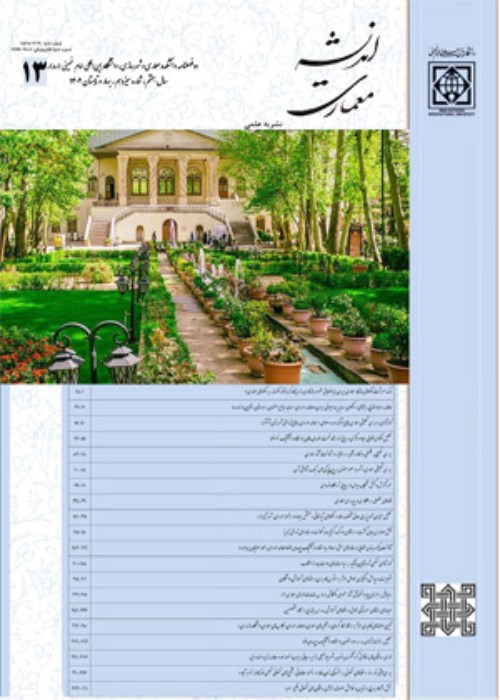Ethics of Building (Perspective of Virtue Ethics and Kantian Ethics)
Author(s):
Article Type:
Research/Original Article (دارای رتبه معتبر)
Abstract:
Despite of its important and widespread ethical dimensions, architecture has long been studied and considered as aesthetics, rather than ethics. Any free and autonomic action of human is subject to moral observance and judgment. To build is the most fundamental activity in architecture and has many effects on human, natural environment and built environment. Therefore, it should be a subject of moral judgment. On the other hand, the relation between theory and practice is unavoidable, and ethical theory, which is essentially “prescriptive” and refers to “ought” and “ought not”, has a profound connection with acting and building. The philosophy of ethics, is the study of justifying the ethical positions and reasoning behind our moral beliefs. Normative ethics is a main branch of philosophy of ethics that generally examines good (right) and bad (false) affairs, and examines how to determine morally right and false actions. Three types of theories can be identified in the normative ethics, according to the type of attention to the results of the acts: 1) “Consequentialist theories” (includes Egoism and Utilitarianism), in which merely the result of the acts determines goodness and evil of the acts. 2) “Non-consequentialist theories” (includes Natural law theory, Divine command theory, Kant theory), in which the result does not determine goodness and evil of the acts. 3) “Virtue ethics”, in which the concept of ‘virtue’ is vital and central. Each of the normative ethical theories has some particular general position and criteria. Special opinion of these theories about ‘building in architecture’ can be deduced and inferred from their basic and general principles and viewpoints. This research is developmental, in terms of purpose; and its approach is qualitative. The research method is descriptive-analytic and it is based on rational reasoning. The purpose of this article is to study the perspectives of two important theories of normative ethics (virtue ethics and Kantian ethics) about building in architecture. How does define the desired and acceptable building in these two moral perspectives, and what kind of architecture will be result from these two theories? In the first part of the article, that is descriptive, it has been tried to identify and introduce the principles and criteria of two theories of virtue ethics and Kantian ethics through referring to the technical texts of ethics. In the second part of the article, which is analytical and argumentative, it has been tried to infer the basic instruction and their point of view on the acceptable building in architecture through reflecting on the basics and criteria of each theory, with logical reasoning method, and it has been tried to provide some evidences and examples in confirming the inferences. The Research results show that, firstly, there are several deep and serious differences between these two ethical theories; and, second, there is direct relationship between virtue ethics and traditional architecture and between Kantian ethics and contemporary architecture. On the other hand, each of us, often subconsciously, follows rules and maxims in our actions, that can be considered as kind of moral theory. If everyone be aware of his/her ethical position and reasoning for his/her ethical rules that governing his/her actions, he/she can criticize, deepen and transcend them. This paper can also be helpful in this regard.
Keywords:
Language:
Persian
Published:
Architectural Thought, Volume:3 Issue: 5, 2019
Pages:
1 to 16
magiran.com/p2052505
دانلود و مطالعه متن این مقاله با یکی از روشهای زیر امکان پذیر است:
اشتراک شخصی
با عضویت و پرداخت آنلاین حق اشتراک یکساله به مبلغ 1,390,000ريال میتوانید 70 عنوان مطلب دانلود کنید!
اشتراک سازمانی
به کتابخانه دانشگاه یا محل کار خود پیشنهاد کنید تا اشتراک سازمانی این پایگاه را برای دسترسی نامحدود همه کاربران به متن مطالب تهیه نمایند!
توجه!
- حق عضویت دریافتی صرف حمایت از نشریات عضو و نگهداری، تکمیل و توسعه مگیران میشود.
- پرداخت حق اشتراک و دانلود مقالات اجازه بازنشر آن در سایر رسانههای چاپی و دیجیتال را به کاربر نمیدهد.
In order to view content subscription is required
Personal subscription
Subscribe magiran.com for 70 € euros via PayPal and download 70 articles during a year.
Organization subscription
Please contact us to subscribe your university or library for unlimited access!



